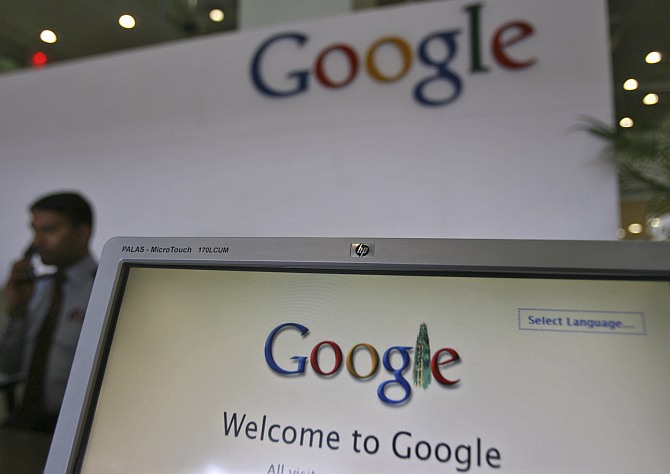 | « Back to article | Print this article |
Can Google fix an election?
Altering Google search results can pose a real threat to democracy as it has a major impact on the voting preferences of undecided voters and could swing a close election, according to a new landmark study analysing the just concluded Lok Sabha polls in India.
The study conducted in India in recent weeks suggests that Google has the power to fix elections "without anyone being the wiser".
This is possible because of the power that search rankings have on people's opinions, researchers said.
Studies show that the higher the rank, the more people trust the result, which is why companies are spending billions now to push their products higher.
"So could highly-ranked search results that make Arvind Kejriwal look better than Narendra Modi drive votes to Kejriwal?" researchers set out to determine.
Click on NEXT to read further...
- Complete Coverage: Election 2014
Can Google fix an election?
In research conducted last year in the US, researchers found that search rankings biased in favour of a candidate could push the preferences of undecided voters towards that candidate by 15 per cent or more.
Now, in a new study conducted in recent weeks with more than 2,000 undecided voters throughout India, the researchers have shown that votes in India can easily be pushed towards one candidate or another by about 12 per cent -- double that amount in some demographic groups -- enough to determine the outcomes of many close races.
"This is a very serious matter -- a real threat to democracy," said Dr Robert Epstein, lead researcher in the study and Senior Research Psychologist at the American Institute for Behavioural Research and Technology in California.
"If two candidates were both trying to push their rankings higher, they would be competing, and that's fine. But if Google, which has a monopoly on search in India, were to favour one candidate, it could easily put that candidate in office by manipulating search rankings, and no one could counter what they were doing.
Click on NEXT to read further...
Can Google fix an election?
"Even if without human intervention the company's search algorithm favoured one candidate, thousands of votes would still be driven to that candidate," said Epstein.
In the new study, participants were randomly assigned to groups in which search rankings favoured either Kejriwal, Rahul Gandhi, or Modi.
Real search rankings and web pages were used, and people were asked to research all the candidates just as they would on Google. The only difference between the groups was the order in which the search results were displayed.
The new study suggests that biased search rankings can be used to fix the outcome of races in India in which the winner is projected to win by a margin up to 2.9 per cent.
This can be done just by influencing undecided voters who use the internet -- a small but important group of voters that is sure to grow in coming years, researchers said.
Click on NEXT to read further...
Can Google fix an election?
Worldwide, the researchers said, upwards of 25 per cent of national elections are won by margins under 3 per cent.
The study also shows that certain demographic groups are especially vulnerable.
The voting preferences of 19 per cent of women over 35 were shifted in the study, as were the voting preferences of 18 per cent of voters who were unemployed.
"Of particular concern is the fact that 99 per cent of the people in our study seemed to be unaware that the search rankings they saw were biased. That means Google has the power to manipulate elections without anyone suspecting they're doing so," said Epstein.
"To prevent undue influence, election-related search rankings need to be regulated and monitored, as well as subjected to equal-time rules," Epstein said.



